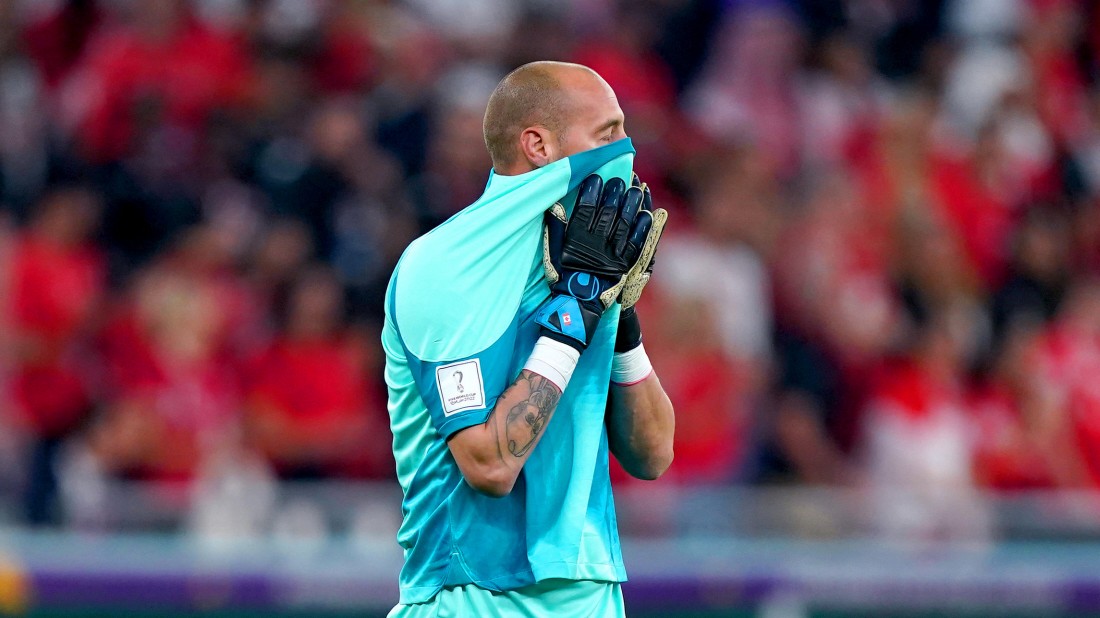No one knows what was going through Milan Borjan’s head. After four minutes, Canada’s goalkeeper pushed the ball softly and perfectly in front of Hakim Ziyech’s feet, as if he were on drugs, the Morocco striker just had to maneuver the ball into the empty net.
On the day of the decision in Group F of the World Cup, the initial 1-0 lead was immediately canceled in the parallel match of Croatia against Belgium (0-0). And even more when Morocco restarted 19 minutes later. Borjan, 35, was once again acting rather amateurish as En-Nesryi put the ball down for the 2-0 lead into the short corner of the goal. “You can keep it,” said not only German Magenta TV expert Michael Ballack.
No one knows what film was spinning in Milan Borjan’s head that day. In the closing stages, when his team put their opponents on the defensive on a score of 1-2, he launched another excursion into the half of Morocco – and almost provoked a counter-attack.
But one thing is certain: what film was spinning in Borjan’s head in the previous days. Because he has long dominated the debates in Croatia: Milan Borjan, born in 1987, grew up in the Republic of Krajina, occupied by Serbia during the Croatian war (1991-1995). Towards the end of the conflict he fled to Canada with his family from the advancing Croatian military – doesn’t he have Greater Serbian views towards Croatia?
The thing fits with a World Cup tournament that has more and more quirks
At least that’s how it looks there. You are very close: Borjan plays for Red Star Belgrade, the pride of Serbian football known for his chauvinism. That’s why this case begins in the second group game: Borjan not only conceded four painful goals in Canada’s 4-1 loss to Croatia, but he was loudly insulted by Croatian fans and with posters during the match. And his wife was also subjected to abuse. The matter has been in the Disciplinary Chamber of the FIFA world association since Tuesday.
After the match, he said his phone number was leaked and he had received thousands of hate messages. “Insults and threats,” Borjan complained. “I have many Croatian friends, I never paid attention to who is from where. But I will always be proud of my birthplace.” He was born in “Republika Srpska Krajina,” he told Serbian media — while his Croatian grandmother told local media that Borjan also had Croatian roots.
The hostility in the Croatia match determined the headlines in Croatia and Serbia, the scandal lasting days until the last group match. The media called on Fifa to crack down, claiming the German team had been fined €10,000 for failing to send a player to a press conference.
In this politically heated climate, one could admire a blackout that will go down in the annals of Fifa. A bag mistake that rarely happens even on the fallen fields of the league’s district companies. A spectacular goal given to Morocco, the team that could have eliminated Croatia (Canada had already been eliminated). This is followed by another weak action from the goalkeeper on the second goal. Canada port gate no longer helped.
A toxic accident in a politically overloaded World Cup. Whether and how things will work out – whether Canada’s goalkeeper was too upset by the uproar (and therefore he shouldn’t have been sent onto the pitch in the first place) – we’ll probably never know. What is certain is that this absurdity is part of a World Cup that is showing more and more strangeness. The new dark power, the mysterious video refereeing, played no role in Milan Borjan’s blackout match.


